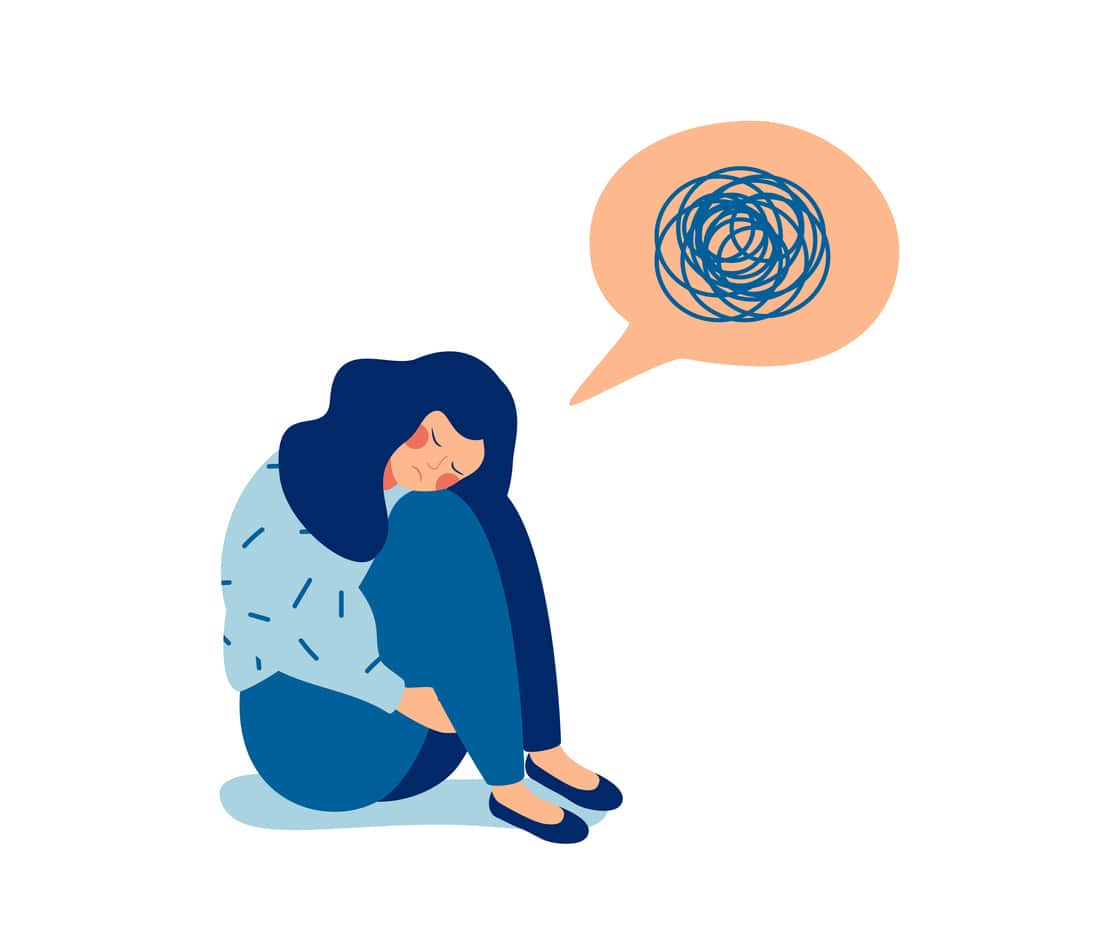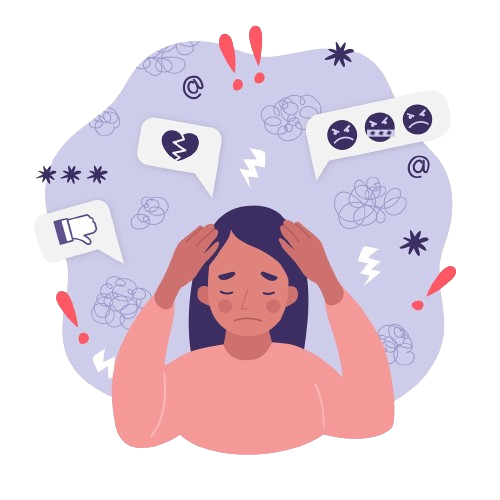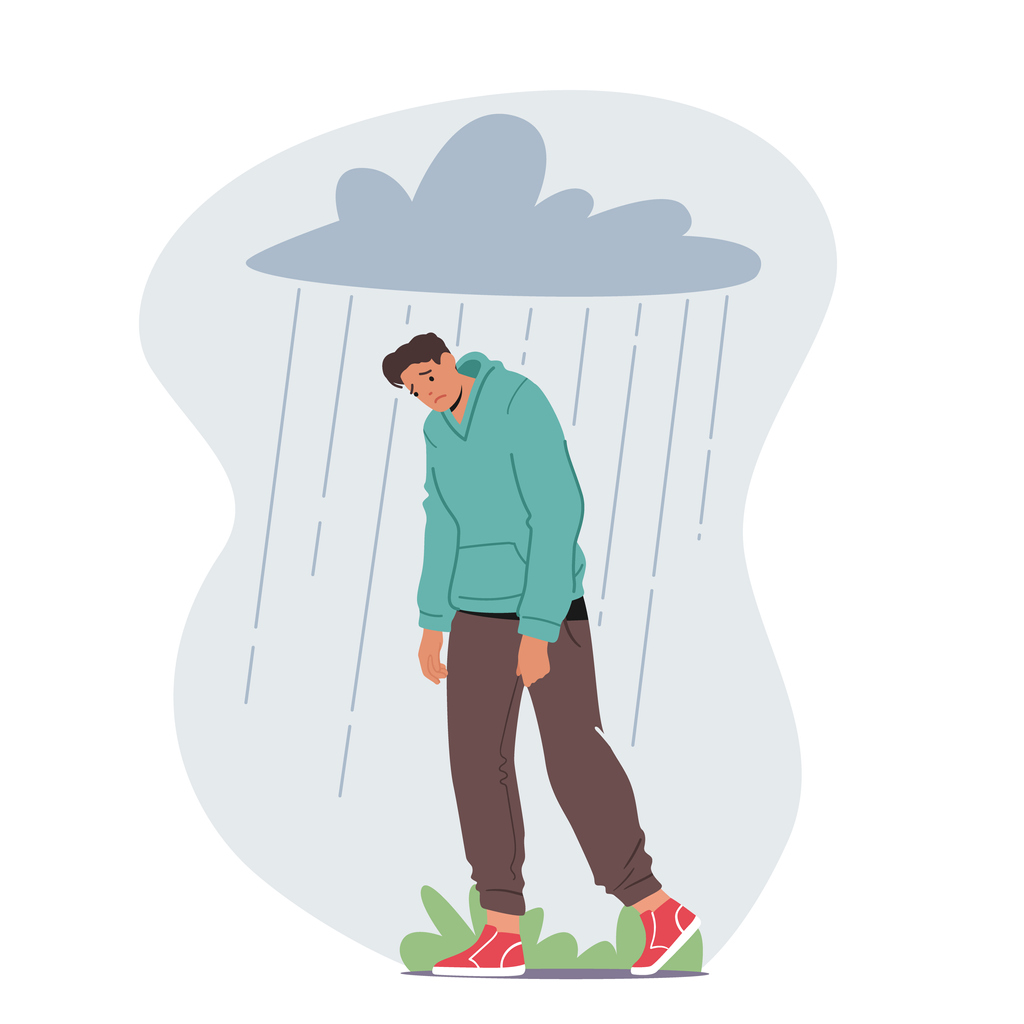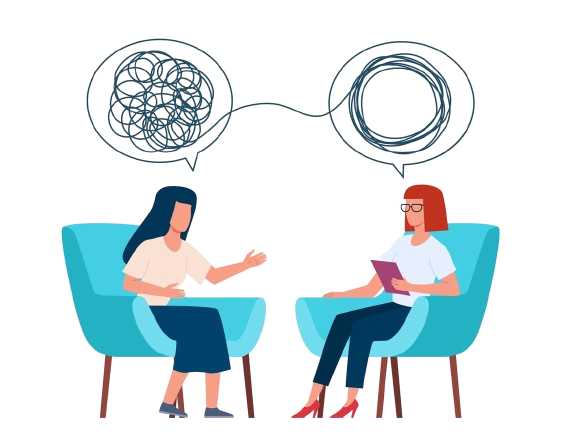Schizoaffective Disorder Treatment
in Atlanta
Living with schizoaffective disorder means life has put many roadblocks in a person’s way. Fortunately, help can be found that elevates their ability to live with this challenging disease. Atlanta Integrative Psychiatry provides treatments for schizoaffective disorder that teach people to recognize their symptoms and help adjust how they react to them.


What is Schizoaffective Disorder?
Schizoaffective disorder is a mental illness that afflicts about 0.3% of the population in the U.S. While it does not have a cure, getting quality treatment for schizoaffective disorder helps people learn to manage their symptoms and enjoy an elevated quality of life.
People who have this illness experience a combination of symptoms common with schizophrenia and a mood disorder, such as depression. Schizoaffective disorder is often misdiagnosed as schizophrenia or bipolar disorder, making it important that someone who has it receives a thorough assessment so they have an accurate diagnosis.
Signs and Symptoms of Schizoaffective Disorder
When someone needs treatment for schizoaffective disorder, they will experience signs that are noticeable to themselves and those around them. Not everyone has the same set of symptoms, but many are common. These include:
- Paranoia
- Delusional thinking
- Hallucinations
- Disorganized thinking
- Difficulty communicating or uncommunicative
- Episodes of mania (feeling extreme joy)
- Episodes of depression
- Lack of interest in social interaction
- Trouble concentrating on tasks or conversations
- Risky behavior
- Poor personal hygiene
- Change in weight or eating patterns
- Change in sleep patterns
Because schizoaffective disorder can be misdiagnosed, anyone seeking a diagnosis should be examined by a medical or psychological expert who recognizes the symptoms of this disease.

Common Treatments for Schizoaffective Disorder
Treatment for schizoaffective disorder combines using different therapy modalities and prescription medications. While the illness cannot be cured, there are highly effective treatments for schizoaffective disorder that make life easier to manage and help the individual live their lives to their fullest capability. Treatment should come from a facility or clinic that employs therapists with experience working with people who have schizoaffective disorder. This provides the individual with the best ability to ease some of their symptoms and understand the power they have to manage their mental health.
Treating Schizoaffective Disorder with Therapy
Using more than one type of therapy helps people minimize their symptoms whenever possible. They also learn to develop healthy coping skills that allow them to reframe how they see the world and their reactions to it. Common therapy modalities used to treat schizoaffective disorder include:
Individual Psychotherapy: The person works one-on-one in private sessions with a therapist who understands the intricacies of schizoaffective disorder. This provides a reliable, safe outlet to open up about how the person feels and thinks. They begin developing healthy ways to cope and explore how they can learn to control their thoughts, emotions, and behaviors in positive ways.
Cognitive Behavioral Therapy (CBT): CBT teaches people how their thoughts end up influencing how they react and behave. As a result, they can learn to turn negative actions and reactions into positive ones.
Dialectical Behavioral Therapy (DBT): DBT helps the person develop healthy coping skills they can use when they feel negative impulses brought on by triggering emotions or situations. Learning to regulate their emotions helps them feel more at ease, and they can enjoy healthier relationships with those around them.
Transcranial Magnetic Stimulation (TMS): This modern-day approach involves using a non-invasive treatment to help alleviate symptoms like depression that often occur with schizoaffective disorder. The process involves using magnetic pulses that stimulate targeted areas of the brain and help improve a person’s symptoms.
Treating Schizoaffective Disorder with Medications
Using prescription medications can help alleviate or reduce symptoms that come with having schizoaffective disorder. For some, using a combination of medications works best. The most common mental health medications used drugs are antipsychotics, antidepressants, and mood stabilizers.
Signs and Symptoms of Schizoaffective Disorder
When someone needs treatment for schizoaffective disorder, they will experience signs that are noticeable to themselves and those around them. Not everyone has the same set of symptoms, but many are common. These include:
- Paranoia
- Delusional thinking
- Hallucinations
- Disorganized thinking
- Difficulty communicating or uncommunicative
- Episodes of mania (feeling extreme joy)
- Episodes of depression
- Lack of interest in social interaction
- Trouble concentrating on tasks or conversations
- Risky behavior
- Poor personal hygiene
- Change in weight or eating patterns
- Change in sleep patterns
Because schizoaffective disorder can be misdiagnosed, anyone seeking a diagnosis should be examined by a medical or psychological expert who recognizes the symptoms of this disease.


Common Treatments for Schizoaffective Disorder
Treatment for schizoaffective disorder combines using different therapy modalities and prescription medications. While the illness cannot be cured, there are highly effective treatments for schizoaffective disorder that make life easier to manage and help the individual live their lives to their fullest capability. Treatment should come from a facility or clinic that employs therapists with experience working with people who have schizoaffective disorder. This provides the individual with the best ability to ease some of their symptoms and understand the power they have to manage their mental health.
Treating Schizoaffective Disorder with Therapy
Using more than one type of therapy helps people minimize their symptoms whenever possible. They also learn to develop healthy coping skills that allow them to reframe how they see the world and their reactions to it. Common therapy modalities used to treat schizoaffective disorder include:
Individual psychotherapy works one-on-one in private sessions with a therapist who understands the intricacies of schizoaffective disorder. This provides a reliable, safe outlet to open up about how the person feels and thinks. They begin developing healthy ways to cope and explore how they can learn to control their thoughts, emotions, and behaviors in positive ways.
CBT teaches people how their thoughts end up influencing how they react and behave. As a result, they can learn to turn negative actions and reactions into positive ones.
DBT helps the person develop healthy coping skills they can use when they feel negative impulses brought on by triggering emotions or situations. Learning to regulate their emotions helps them feel more at ease, and they can enjoy healthier relationships with those around them.
TMS is a modern-day approach involves using a non-invasive treatment to help alleviate symptoms like depression that often occur with schizoaffective disorder. The process involves using magnetic pulses that stimulate targeted areas of the brain and help improve a person’s symptoms.
Using prescription medications can help alleviate or reduce symptoms that come with having schizoaffective disorder. For some, using a combination of medications works best.
The most common mental health medications for schizoaffective disorder are antipsychotics, antidepressants, and mood stabilizers.
How Treatment Works at Atlanta Integrative Psychiatry
Find Schizoaffective Treatment in Atlanta, Georgia
It can be scary to reach out for help to deal with a mental illness. Schizoaffective disorder, in particular, can be challenging, and not every treatment program is prepared to offer quality care to help people manage this condition. Atlanta Integrative Psychiatry offers treatments for schizoaffective disorder that help the individual stop suffering and learn to manage their illness. Our combination of evidence-based therapies and prescription medications helps ease the symptoms of schizoaffective disorder and empowers people to feel more in control of their lives.
For more information, contact us now. Our staff is happy to talk to you about how we can improve your mental health with proven methods of treatment.
You are not alone. You deserve to get help.
Atlanta Integrative Psychiatry is an Industry leader in mental health treatment . Our team of top medical experts specialize in dual diagnosis treat and are committed to ensuring that each patient is treated as an individual.
Call us today, we're avialable 24/7.




